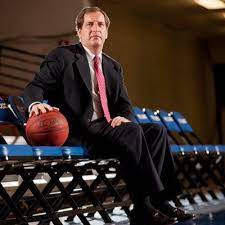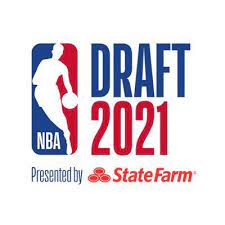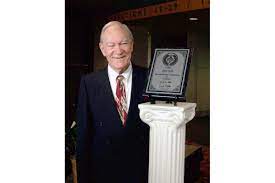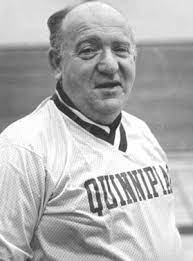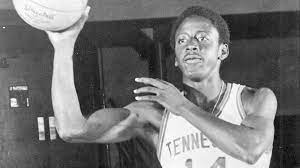You cannot think about Presbyterian basketball without thinking of Gregg Nibert. After spending a few years there as an assistant in the 1980s, he took over as head coach in 1989 and won more than 400 games before stepping down in 2017 with a winning record. HoopsHD’s Jon Teitel got to chat with Coach Nibert about making the leap to D-1 and facing a high school phenom named Zion Williamson. Today is Coach Nibert’s 64th birthday so let us be the 1st to wish him a happy 1!
You played basketball at Marietta College: how good a player were you back in the day, and how did you get into coaching? I was a very knowledgeable PG and started my final 2 years on the varsity. I played good defense and got the ball to the good players on my team. I knew that I probably wanted to coach and always wondered why guys did what they did on the court. My head coach Phil Roach knew Mike Schuler who was the head coach at Rice and I became his grad assistant.
You became head coach at Presbyterian in 1989: why did you take the job, and could you have ever imagined that you would stick around for almost 3 decades? I started there as an assistant with Butch Estes before becoming an assistant at Furman for 5 years and later returning to Presbyterian. That was another dream come true: my wife is from Simpsonville which is right up the road. We were an NAIA school at the time before joining D-2 for about 15 years and then going to D-1.
In 1996 you won the South Atlantic Conference tourney title: how big a deal was it at the time? That was a huge deal because we had just moved up to D-2 in the early 1990s. We had some really nice teams and made the D-2 tourney in consecutive years in 1996/1997. It was a heck of a league with some really good coaches.
You were a 2-time SAC COY: what did it mean to you to receive such outstanding honors? I had some top-notch assistants and recruited some low-D-1 players who wanted to get a great degree. We were a 1st-class school who played some D-1 teams like Charleston and traveled abroad and made some D-2 tourneys. My guys wanted to win and some of them even turned down D-1 schools to come here: they were hard-nosed/tough and worked hard.
In 2007 your school made the leap to D-1 and you ended up playing 25 of 30 games on the road: what is the biggest difference between D-2 and D-1, and how exhausted were you by the end of that year? To play Duke/UNC and beat a ranked Cincy team made me have to pinch myself! When we found out that we were not going to be in a conference we decided to get our name out around the country and bring in as much money as we could from guarantee games. We went all over the country and made about $650,000. I knew the guys wanted to travel and we recruited some nice players but it was probably a bit much. We were all a little weary to be honest and when you are used to winning the losing can be tough on everyone.
Every single 1 of your seniors graduated from Presbyterian during your tenure: how much importance do you place on academics? We tell them from the get-go that academics came 1st: we scheduled our practices around classes and we wanted our guys to get their degrees. Some of them went on to play pro basketball but they all knew that the ball would stop bouncing eventually. We had 1 guy who did not graduate after a terrible spring semester but he might have gone back to get his degree later.
You remain the all-time winningest coach in school history: what makes you such a great coach, and do you think that anyone will ever break your record? The most fortunate thing is longevity: I was there for 28 years and won more than 400 games. Our staff got some great players who were mentally tough and played good defense. They had a tremendous work ethic and were very physical. We beat Wake Forest/Auburn in back-to-back games 1 year!
You later became an assistant coach at Spartanburg Christian Academy: how did you like the job, and what do you hope to do in the future? It was really neat! When I was a head coach I learned early on that loyalty was extremely important and I was very blessed to be at a great school. I have known head coach Chris Arp for a long time and he runs the same point-zone defense that I ran at Presbyterian. The kids look up to him and I was proud to be in a different role. I enjoyed it a lot and we were close to winning a championship.
A few years ago in your school’s game against Spartanburg Day School, Zion Williamson had 37 PTS/10 REB/5 STL in a 31-PT win in the SCISA Region I-2A tournament: how dominant was he in high school, and what do you think his ceiling will be in the NBA? I heard all of the unbelievable stories: everyone loved him even if he was pounding a dunk on you. Every gym was standing-room-only wherever he played. There is no doubt that everyone is in awe of a 290-pound player who is so athletic. I think that he will become 1 of the best NBA players ever. He has a really compassionate heart, wants to win, and is like a sponge because he wants to learn as much as he can. He cares about his teammates and does whatever it takes to win.
When people look back on your career, how do you want to be remembered the most? We took a challenge and were 1 of the best teams in NAIA. We almost made the Elite 8 in 2003 and made a good plan to go to D-1. We lost our D-1 status for 1 year so our seniors had to essentially redshirt for 1 year but were still right on par to do some good things that nobody expected us to do. Guys got better while they were there both as individuals and as a team, which is what any head coach wants to happen.

